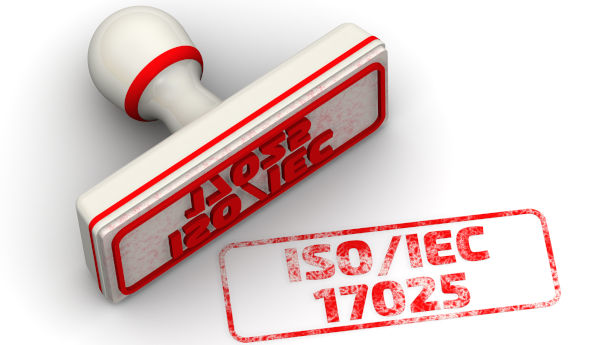
ISO 17025 is a globally recognized standard aiming at determining the capability of testing and calibration laboratories. It serves the purpose of demonstrating the competency of lab activities, such as providing accurate and timely results.
Using an ISO 17025 accredited laboratory can also help importers and manufacturers to ensure that their products’ testing results are reliable. Also, some marketplaces such as Amazon only accept ISO 17025 accredited labs, for certain product listings.
In this guide, we introduce the scope of ISO 17025, the accreditation process, and list some ISO 17025 accredited laboratories.
Content Overview

FREE CONSULTATION CALL (30 MIN)
 Ask questions about compliance requirements
Ask questions about compliance requirements Countries/markets:
Countries/markets:
 Learn how we can help your business
Learn how we can help your business
You will speak with:Ivan Malloci or John Vinod Khiatani
What is ISO 17025?
ISO 17025 is the main management system standard used to assess the competency of testing and calibration laboratories. ISO 17025 is applicable to test laboratories regardless of their size or testing and calibration activities. It enables laboratories to demonstrate that their management system, administrative and technical operations comply with an internationally recognized standard.
The standard does not set procedures on how to perform a given test. Instead, it requires the implementation of a specific quality system so that the lab technicians are put in the conditions to produce accurate results.
ISO 17025 sets out requirements for tests and calibrations procedures for a wide range of industries, for example, chemical and construction material industries. Also, some importers and manufacturers might need to use an ISO 17025 accredited lab, as some industries – such as the construction industry, and some marketplaces, such as Amazon, only accept test reports released by ISO 17025 labs, at least for certain products.
The standard covers topic such as:
- Organization and management
- Quality system
- Personnel
- Accommodation and environmental conditions
- Test and calibration methods
- Equipment
- Administration of work
ISO 17025 Scope
ISO 17025 covers a wide range of testing fields, such as chemical, mechanical or biological. The scope of accreditation lists the tests and calibrations that a given lab is accredited to perform. For testing labs, it might include the type of test methods used, and products or material for which they can be used. For calibration labs, it might include the types of measurements capability
The requirements to comply with the standard might therefore vary according to the scope of accreditation. Here are some of the most common:
- ISO 17025: Chemical accreditation
- ISO 17025: Acoustics and vibration accreditation
- ISO 17025: Biological accreditation
- ISO 17025: Thermal accreditation
- ISO 17025: Mechanical accreditation
Below we list some of the most important requirements.
Calibration and Testing
ISO 17025 sets out the general requirements for performing tests and calibrations. It covers types of testing and calibration methods such as the following:
- Standard methods
- Non-standard methods
- Laboratory-developed methods
Technical Reports and Documentation
ISO 17025 provides the technical reports and documentation requirements necessary to become an ISO 17025 accredited lab. Here are some examples of mandatory documents:
- Quality policy
- Facilities and environment procedure
- Test and calibration method procedure
- Quality assurance procedure
- Testing report procedure
- Sampling procedure
Facilities and Conditions
Laboratories should ensure that their facilities and testing conditions are suitable for their activities in order to deliver accurate results. As such, ISO 17025 sets out environmental condition requirements such as below:
- Electrical supply
- Humidity
- Temperature
- Dust control
- Vibration
Also, the laboratory environment should be kept in controlled, monitored, and recorded condition.
Employees Training
ISO 17025 sets out the procedure for training staff in quality issues and technical procedures. In order to ensure the qualification of the staff, ISO 17025 provides requirements such as the following:
- Staff record
- Staff training and assessment of competence
- Training policy
- Action when employees leave
ISO 17025 Accreditation Process
The ISO 17025 accreditation process can take up to six months to one year just for the preparation work and assessment. Laboratories should be fully aware of the requirements, before getting started with the procedure. Below we list some of the essential accreditation steps for ISO 171025.
Perform Gap Analysis
A gap analysis provides information about the current compliance state of a lab with the standard’s requirements. Thus, it helps the lab to understand what kind of adjustments are necessary to achieve ISO 17025 compliance. Laboratories should first evaluate their current competence against the requirements of ISO 17025, then establish a checklist to assess what must be improved, such as facilities conditions or employees training.
Documentation
Laboratories might need to improve their documentation procedures as ISO 17025 has sophisticated requirements. They should evaluate their current documentation methods and ensure they meet the ISO 17025 requirements. Here are some examples of documentation procedure requirements:
- Document traceability
- Recording of testing results
- Computer systems for documentation
- Report formats
QMS Implementation
The next step is to implement a Quality Management System (QMS). As the requirements of ISO 17025 are quite strict, laboratories might need to improve their QMS to meet the ISO 17025 requirements. Here are some key elements set out under the standard:
- Quality documentation and SOPs
- Quality system records
- Document control system
- Monitoring and maintenance
- Quality audit
Internal Audit
After implementing a QMS, laboratories need to conduct an internal audit to assess how the system performs and seek further improvement, if necessary. SO 17025 also covers auditing checklists and training courses for internal auditors.
The audit checklist should include an overview of QMS implementation, such as:
- Document control performance
- Maintenance performance
- Control of testing and/or calibration work
- Corrective action plans
- Improvement
Accreditation Audit
The last step is the accreditation audit. At this time, laboratories should have completed the preparation work such as QMS implementation, documentation control, and personnel qualification. A third-party accreditation body (AB) will then conduct an assessment of the laboratory for ISO 17025 accreditation.
Here are some items that the laboratory should prepare for the accreditation audit:
- Scope of accreditation
- Master document list
- Supplier list
- Internal audit report
- Training records
- Personnel qualification list
- Sample test and calibration reports
Certificate of Accreditation
A Certificate of Accreditation is a document issued by an accreditation body to a testing laboratory that passed the accreditation audit. In the case of ISO 17025, the certificate should contain information such as:
a. Accreditation body (e.g. A2LA)
b. Accredited testing or calibration lab (e.g. TUV Rheinland (Guangdong) Ltd)
c. ISO certificate number (e.g. 4302.01)
d. Certificate date of expiration (e.g. 30 September 2023)
e. ISO 17025 version (e.g. ISO/IEC 17025:2017)
You can find an example here of a Certificate of Accreditation issued by A2LA to TUV Rheinland (Guangdong) Ltd.
ISO 17025 Accreditation Costs
ISO 17025 accreditation costs depend on many factors, such as lab location, size, accreditation scope, and the cost of equipment or software necessary to pursue the accreditation.
A 2017 Survey report published by the Association of Public Health Laboratories (APHL) reports that the median cost for ISO 17025 accreditation among labs in the food industry is around USD 300,000. This includes the following:
a. Calibration costs: USD 10,000
b. New equipment purchase: USD 15,000
c. Training costs: USD 12,000
d. System monitor rand software costs: USD 50,000
e. Preventive maintenance costs: USD 60,000
f. Salaries due to the need for additional staff, such as dedicated quality staff: USD 150,000
g. ISO 17025 assessment fee charged by the accrediting body: USD 7,000
Amazon Requirements
Amazon sellers must comply with federal regulations, state regulations, and Amazon’s own product safety policies that apply to their products. For some products, Amazon requires test reports from an ISO 17025 accredited laboratory.
Example A: Dietary Supplements (Link)
Quoted from Amazon Seller Central: “A finished product Certificate of Analysis (COA) of declared dietary ingredients issued by an ISO/IEC 17025 accredited laboratory or in-house laboratory located in the above facility that is compliant with current GMPs (21 CFR Part 111 (for products that are a dietary supplement as defined at 21 U.S.C. 321(ff)), or 21 CFR Part 117 (for any other human food product as defined at 21 U.S.C. 321(f)), or both). The valid COA must have the ISO accreditation number listed on the certificate that is submitted or the ISO/IEC 17025 accreditation certificate. (For additional details about Certificate of Analysis specifications, go to Requirements for the Certificate of Analysis below.)”
Example B: Mobile Phone / Laptop Computer Batteries and Chargers (Link)
Quoted from Amazon Seller Central: “Test reports from an ILAC ISO 17025 certified laboratory confirming each product was tested to the requirements listed below”
Lab test report
Under Amazon’s policy, the report may need to include the following information:
- Laboratory’s name
- ISO accreditation number
- Proof of compliance
- Test reports
- Applicant’s contact
- Manufacturer’s name
- Product description (with image)
Amazon’s policy on ISO 17025 applies to many product categories such as:
- Dietary supplements
- Product packaging
- Jewelry
- Electronics
Examples of ISO 17025 Accredited Labs
Here we list some ISO 17025 accredited labs for reference:
- QIMA
- SGS North America
- NSF Certification
- Duke Energy Dosimetry Laboratory
- Intertek Japan K.K. Calibration Laboratory
You can search for more ISO 17025 accredited labs on the A2LA or NIST directories.
Examples of ISO 17025 Accreditation Bodies
An accreditation body is a company recognized by one or more government agencies (for example the FDA, CPSC, or FCC in the US) or international organizations (for example ILAC, APAC, or IAAC). In the EU, there is only an accreditation body per country, which is recognized by the government.
An accreditation body has the authority to perform final audits and issue certificates of accreditations to lab testing companies. Here we list some accreditation bodies for the ISO 17025 accreditation program:
- American Association for Laboratory Accreditation (A2LA) in the US
- ANSI National Accreditation Board (ANAB)
- Perry Johnson Laboratory Accreditation (PJLA) in the US
- Comité Français d’Accréditation (COFRAC) in France
- DAkkS in Germany
- Dutch Accreditation Council (DAC) in The Netherlands
- United Kingdom Accreditation Service (UKAS) in the UK
- International Accreditation New Zealand (IANZ) in New Zealand
- Korea Laboratory Accreditation Scheme (KOLAS) in South Korea
Examples of ISO 17025 Consulting Companies
There are companies that can help labs to prepare for the ISO 17025 accreditation auditing. Their services include internal auditing training courses, review of required documentation, onsite evaluation of processes, and more.
Here are some companies that offer these services:
- SGS
- TÜV SÜD
- Cavendish Scott
- ABCI Consultants
- ISO Budgets
Some accreditation bodies, such as UKAS, also offer ISO 17025 training programs.
FAQ
How can I verify if a lab is ISO 17025 accredited?
In order to verify if a lab is ISO 17025 accredited, you should:
a. Request the lab’s certificate of accreditation
b. Go to the website of the accreditation body that issued the certificate
c. Search the ISO certificate number to determine if it’s valid
The process to verify if a certificate is valid might vary according to the accreditation body. For example, in the case of labs accredited by A2LA, you can simply input the certificate number in this database.
If the certificate number is valid, you will then find information such as the accredited lab name and address, the certificate date of the validity, the accreditation scope, and more.
What is the difference between an ISO 17025 compliant lab and a non-ISO 17025 lab?
ISO 17025 accreditation helps a lab to demonstrate that they are able to produce precise and accurate test results and calibration data. It acts as a benchmark for laboratories that want to maintain and prove their reliability and capability. Meanwhile, a non-ISO 17025 lab must find another way to demonstrate the competency of their work.
Also, some distributors or marketplaces, such as Amazon, might require test reports from ISO 17025 accredited laboratories, for some categories of products. Thus, an ISO 17025 accredited lab has a competitive advantage.
That being said, any lab could in theory implement the principles of ISO 17025 without being accredited – although I imagine that is quite rare.
Can a lab implement ISO 17025 principles without being accredited or audited?
The ISO 17025 standard principles and requirements can be used as a guideline for lab testing and calibration improvement. Thus, a laboratory can implement these principles without undergoing an auditing and accreditation process.
However, as we saw, the cost of the final auditing is usually a small percentage of the total cost necessary to achieve ISO 17025 compliance. Thus, given the competitive advantage provided by the accreditation, if a lab follows the ISO 17025 requirements, in most cases it would make sense to get the accreditation as well.
What are some risks to consider if we use a non-ISO 17025 accredited lab?
First and foremost, it’s crucial that lab testing is done according to certain principles – which is the very reason ISO 17025 exists in the first place. Without such practices in place, lab test results are less accurate.
Products containing excessive amounts of restricted chemicals could end up being passed while safe and compliant products fail – at least on paper.
Other than that, you also run the risk of Amazon rejecting your lab test report. It’s not inconceivable that market surveillance authorities may also reject a test report issued by a non-ISO 17025 accredited lab.

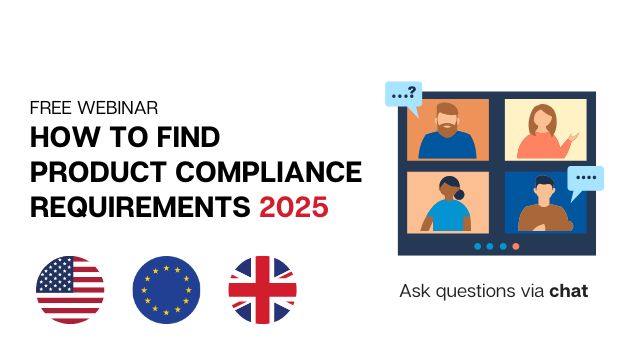





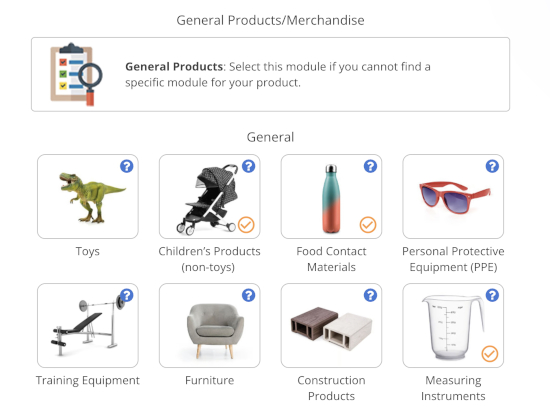






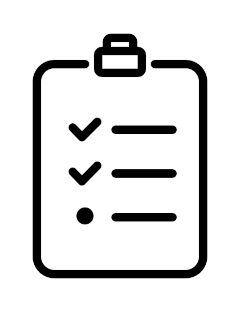


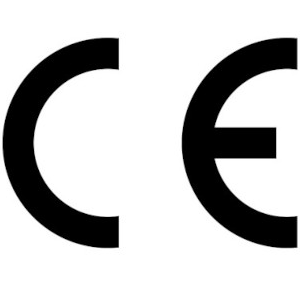




.png)
.png)
.png)
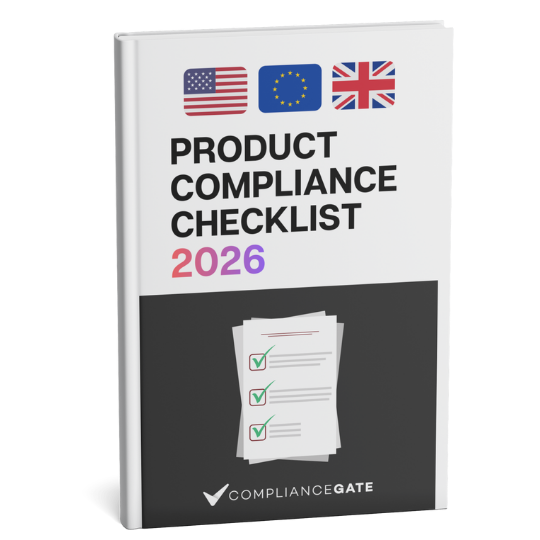
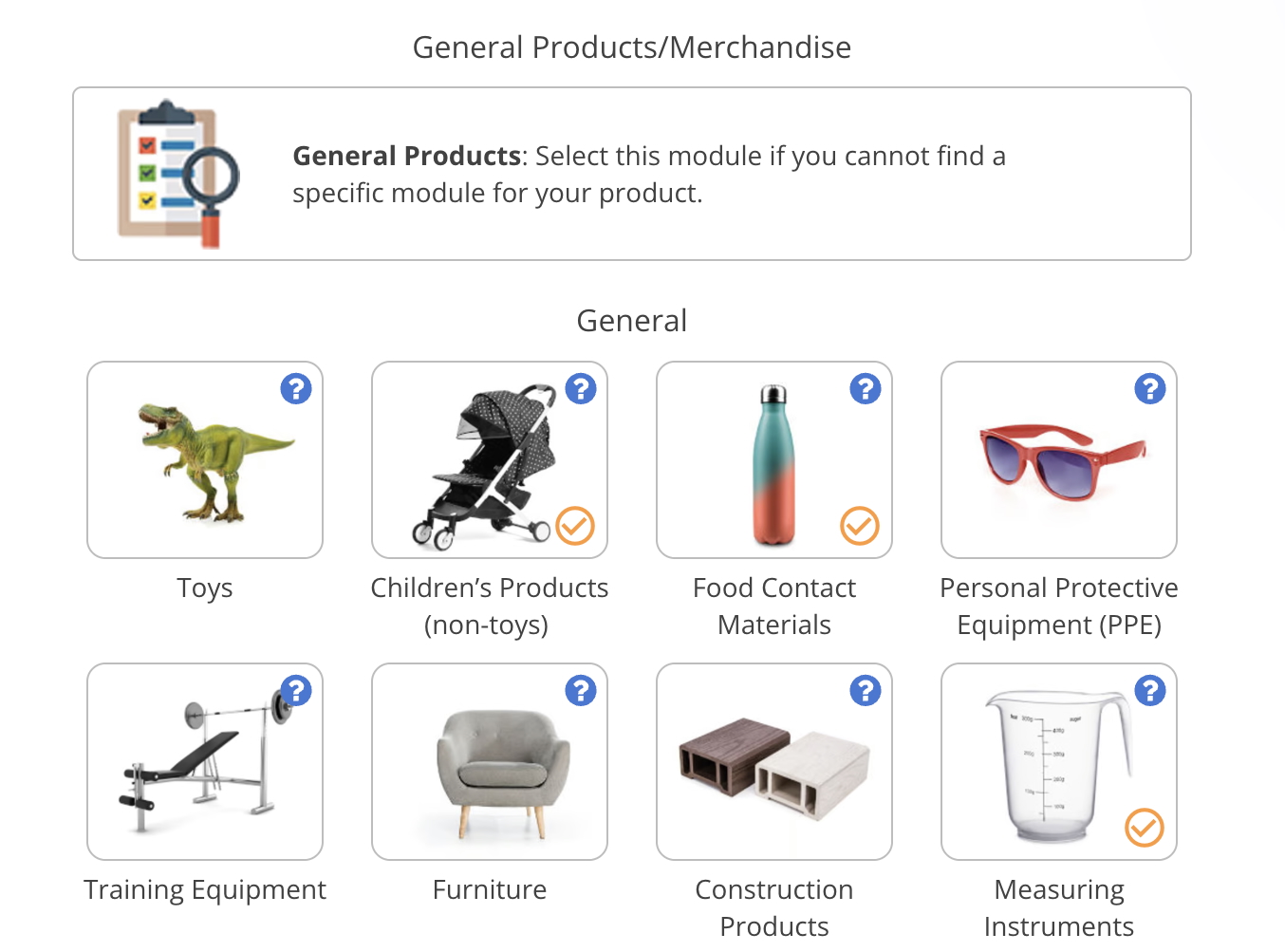


Wonderful info..! That’s a great post that described and provides in-depth knowledge of the ISO 17025 Accreditation for Product Testing Labs. The ISO 1702 accreditation process can be important for every organization who connected to this industry and want to achieve the trust of its customer.